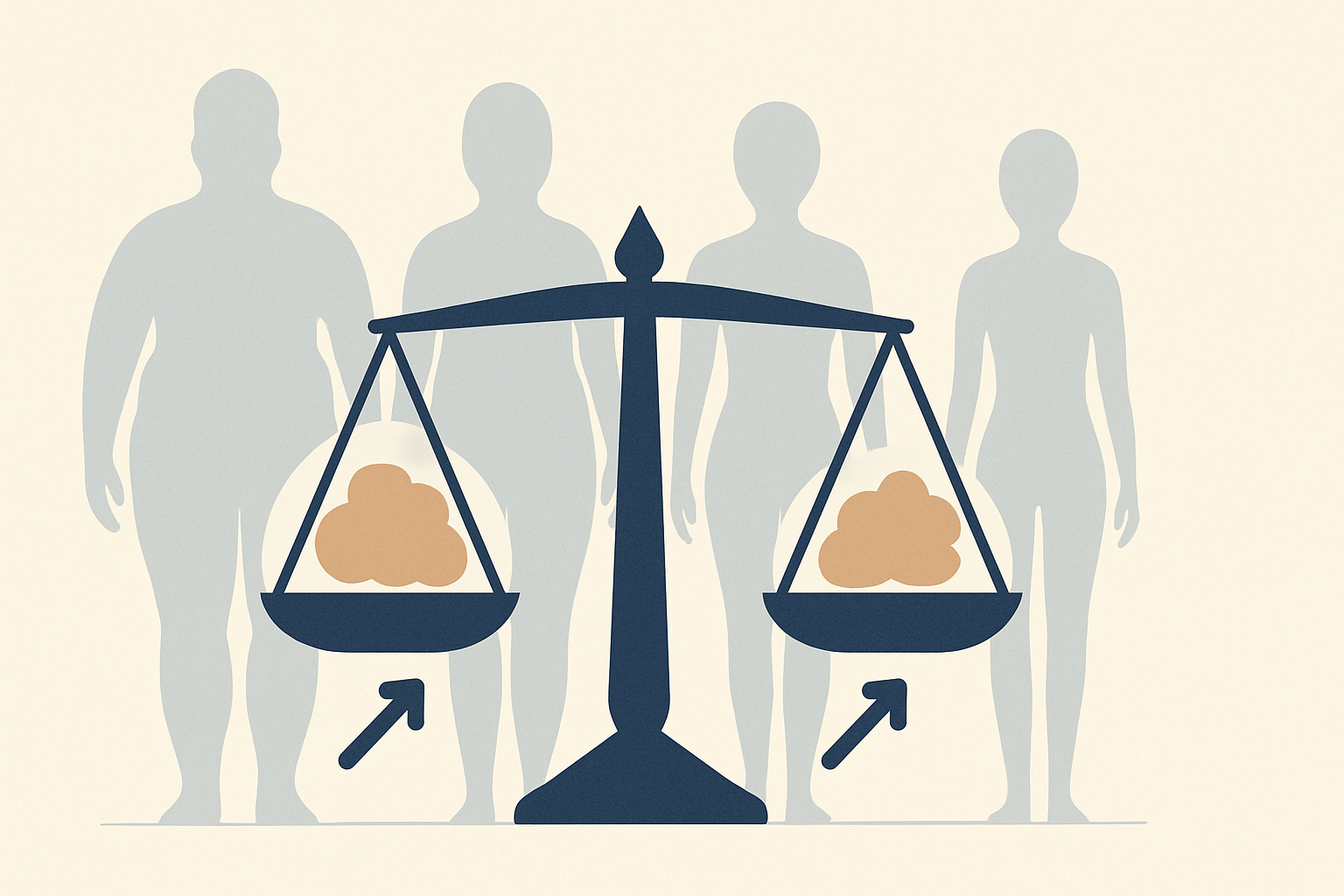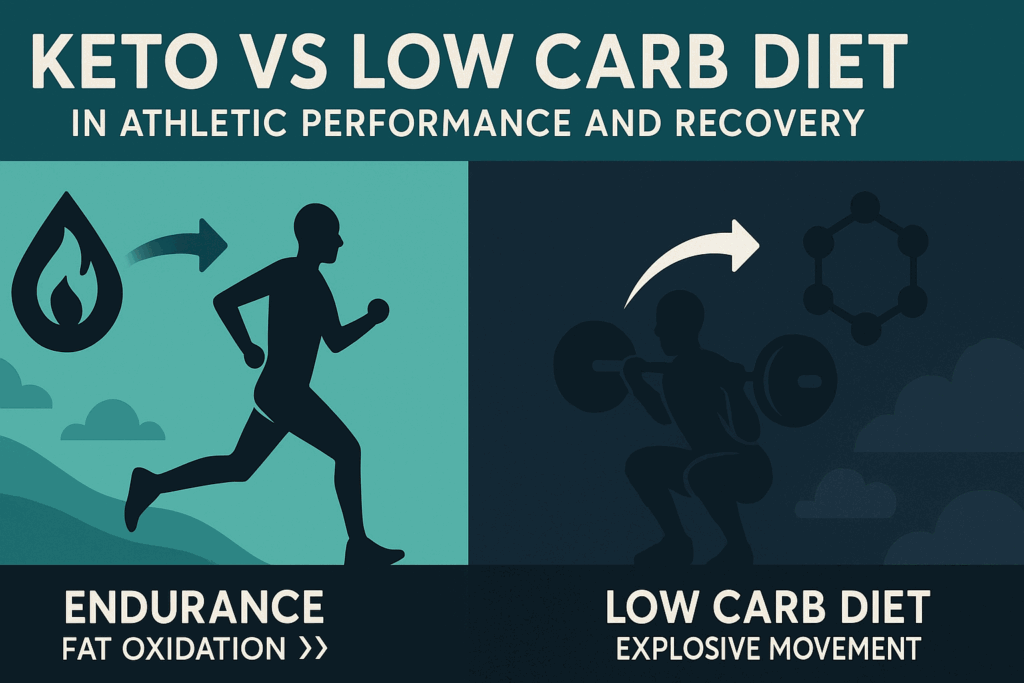In the ever-expanding world of nutrition and diet trends, few debates generate as much fervor as the one surrounding the keto vs low carb diet divide. These two popular dietary approaches are often viewed as interchangeable, but they carry distinct philosophies, metabolic effects, and long-term implications. For those navigating the intricacies of high-protein diets under the broader umbrella of nutrition and diet strategies, understanding the nuanced differences between the ketogenic and low-carb frameworks is essential. In this exploration, we delve into what science really says about the keto vs low carb diet conversation, clearing up common misconceptions while offering evidence-backed clarity.
You may also like : The Ultimate Guide to Choosing a High Protein Diet Name That Fits Your Goals

Understanding the Foundations of the Keto vs Low Carb Diet Frameworks
To appreciate the complexities of the keto vs low carb diet discussion, it helps to first clarify what each diet entails. The ketogenic diet is an ultra-low carbohydrate, high-fat, and moderate-protein nutritional strategy designed to shift the body into a state of ketosis. In ketosis, the liver converts fat into ketone bodies, which become the body’s primary energy source. This metabolic state is what distinguishes keto from most other dietary plans.
By contrast, a low-carb diet is far more flexible. While it also emphasizes reducing carbohydrate intake, it does not require the strict macronutrient ratios of the ketogenic approach. Most low-carb diets allow for greater variability in protein and fat consumption and do not necessarily induce ketosis. This flexibility appeals to a broader audience but often lacks the metabolic precision of a well-executed ketogenic plan.
The macro breakdown in keto typically follows a pattern of 70% fat, 20-25% protein, and 5-10% carbohydrates. Low-carb diets, on the other hand, can range from 20-100 grams of carbohydrates daily and vary widely in fat and protein content. Understanding this distinction is critical because the metabolic effects of each approach are shaped by these ratios.

Metabolic Shifts: Ketosis vs Carbohydrate Restriction
The primary metabolic hallmark of the ketogenic diet is ketosis. This shift in fuel source fundamentally changes how the body operates. Glucose, the default energy currency derived from carbohydrates, is replaced by ketones, which offer a more stable and efficient fuel for the brain and body. Studies have shown that individuals in ketosis often experience enhanced mental clarity, improved energy stability, and a reduction in hunger hormones such as ghrelin.
However, achieving ketosis is not always straightforward. It requires strict adherence to macronutrient ratios and typically takes two to seven days of carbohydrate restriction. For many, this level of discipline can be difficult to sustain, especially in the face of social and cultural eating norms. Low-carb diets, by contrast, do not aim to initiate ketosis and instead focus on maintaining lower blood sugar levels and insulin responses. While this approach may not offer the cognitive or metabolic benefits of ketosis, it can still lead to weight loss and improved glycemic control.
The difference between ketogenic diet vs low carb strategies becomes apparent when comparing their impact on insulin sensitivity. Research indicates that both diets improve insulin response, but ketogenic diets often produce a more significant drop in insulin levels due to the near-elimination of glucose-based fuel. This effect can be particularly beneficial for individuals with type 2 diabetes or insulin resistance.

Keto vs Low Carb Diet in Weight Loss: What Does the Science Say?
Weight loss is a primary motivator for many choosing between low carb vs keto plans. Both diets create a caloric deficit by limiting carbohydrate intake, thereby reducing insulin secretion and increasing fat oxidation. But does one outperform the other in terms of results?
Several randomized controlled trials have compared ketogenic diets to traditional low-carb diets. A 12-month study published in the Journal of Clinical Endocrinology & Metabolism found that participants on the ketogenic diet lost more body fat than those on a standard low-carb diet. The researchers attributed this to the appetite-suppressing effects of ketones, as well as the higher thermic effect of protein and fat digestion.
However, not all research favors keto. Some studies suggest that initial weight loss advantages seen in ketogenic diets may level out over time. In the long term, adherence appears to be the key predictor of success, regardless of whether the diet is keto or low carb. In practical terms, the best diet is often the one that an individual can stick with consistently, rather than the one that shows the most dramatic short-term results.
The Role of Protein in Both Diets: Navigating High-Protein Variations
Protein intake is a critical component of both the ketogenic and low-carb dietary frameworks, particularly for individuals engaged in strength training or seeking to preserve lean muscle mass during weight loss. While the ketogenic diet is often moderate in protein to prevent gluconeogenesis from kicking the body out of ketosis, some variations, such as the targeted ketogenic diet (TKD) or cyclical ketogenic diet (CKD), allow for strategic increases in protein to support athletic performance.
Low-carb diets typically include higher protein levels as part of their standard structure. This makes them particularly appealing to those on high-protein diets who prioritize muscle repair and metabolic efficiency. Studies have shown that higher protein intakes help preserve resting metabolic rate and satiety during calorie restriction. This effect is especially valuable for those seeking sustainable weight loss without the metabolic slowdown that often accompanies traditional calorie-cutting approaches.
The relationship between protein and ketosis is nuanced. While excessive protein can convert to glucose via gluconeogenesis, moderate protein intake (within 20-25% of total calories) generally supports a ketogenic state. Understanding this balance is crucial for those attempting to tailor their diet to specific body composition goals.

Scientific Insights into Cardiovascular Health: Low Carb vs Keto
One of the most scrutinized areas in the keto vs low carb diet debate is cardiovascular health. Critics of the ketogenic diet often point to its high saturated fat content as a potential risk factor for heart disease. However, recent research paints a more complex picture.
A 2020 meta-analysis published in the British Medical Journal found that low-carb and ketogenic diets significantly reduced triglycerides and increased HDL cholesterol levels, both of which are favorable markers for heart health. Additionally, many individuals on these diets experience reductions in blood pressure and inflammatory markers.
That said, not all fats are created equal. A ketogenic diet composed primarily of bacon, cheese, and butter is unlikely to confer the same benefits as one rich in avocados, olive oil, fatty fish, and nuts. Similarly, low-carb diets that prioritize whole-food sources of fat and protein tend to yield better health outcomes than those relying on processed meat or refined oils.
Moreover, genetics and individual responses play a significant role. Some individuals are hyper-responders to dietary cholesterol and may see increases in LDL particle number or ApoB, both of which are more predictive of cardiovascular risk than total LDL cholesterol alone. In such cases, a more moderated low-carb approach with an emphasis on unsaturated fats may offer a safer long-term strategy.

Mental Clarity, Mood, and Cognitive Function: A Scientific Comparison
Beyond physical health, the effects of ketogenic diet vs low carb strategies on cognitive performance and mood are increasingly being explored. Ketones, particularly beta-hydroxybutyrate, are a preferred fuel for the brain and have been shown to enhance mitochondrial efficiency, reduce oxidative stress, and increase the production of brain-derived neurotrophic factor (BDNF).
These neuroprotective effects make ketogenic diets particularly promising in the context of neurodegenerative diseases such as Alzheimer’s and Parkinson’s. Clinical trials have demonstrated that ketone supplementation or strict ketogenic diets can improve memory, cognition, and verbal fluency in older adults with mild cognitive impairment.
Low-carb diets also contribute to cognitive stability by minimizing glucose spikes and crashes, which are often linked to fatigue, irritability, and brain fog. While these benefits may not be as pronounced as those experienced during full ketosis, they are still significant for individuals with blood sugar dysregulation or mood fluctuations.
Importantly, not everyone experiences improved mental performance on a ketogenic diet. Some individuals report transient brain fog, mood swings, or fatigue during the adaptation phase. This is often referred to as the “keto flu” and typically resolves within a few days to a week. Proper electrolyte balance and hydration can ease this transition.

Keto vs Low Carb Diet in Athletic Performance and Recovery
The intersection of diet and athletic performance is another critical consideration in the keto vs low carb diet conversation. For endurance athletes, ketogenic diets have shown promise in enhancing fat oxidation and preserving glycogen stores during prolonged activity. Some studies report improved time-to-exhaustion and reduced perceived exertion in athletes adapted to ketosis.
However, the benefits are not universal. High-intensity and anaerobic sports that rely on fast-twitch muscle fibers and glycolytic pathways often require more readily available glucose. In these contexts, a low-carb diet that includes occasional strategic carbohydrate intake may offer a more balanced approach. This is where approaches like targeted ketogenic dieting or carbohydrate cycling become relevant.
Muscle recovery is another area of interest. While both diets support reduced inflammation and improved protein synthesis, carbohydrate availability plays a role in replenishing muscle glycogen, particularly after resistance training. Athletes pursuing hypertrophy or explosive power may benefit from a more flexible low-carb strategy that allows for post-workout carbohydrate intake while still maintaining overall carb restriction.
Mental Health, Anxiety, and Neurological Implications
Beyond cognitive performance, the ketogenic diet has shown promise in mental health domains such as anxiety, depression, and mood disorders. The brain’s use of ketones for fuel may improve mitochondrial efficiency and reduce oxidative stress, both of which are linked to improved mental resilience.
Clinical evidence suggests that ketogenic diets may help stabilize mood in bipolar disorder and reduce seizure frequency in refractory epilepsy. While more research is needed, some case studies and pilot trials report reductions in anxiety and depressive symptoms among individuals on keto. This effect may be mediated by more stable blood sugar levels, reduced neuroinflammation, and improved neurotransmitter balance.
Low-carb diets, while not inducing ketosis, also help to regulate mood by preventing postprandial hypoglycemia and promoting balanced neurotransmitter function through adequate intake of amino acids and B vitamins. However, diets that are too low in carbohydrates may impair serotonin synthesis, which depends on insulin-mediated uptake of tryptophan into the brain.
Thus, individualized carbohydrate thresholds should be considered for those with mood disorders or histories of anxiety and depression. A more flexible low-carb diet may offer mood benefits without risking potential downsides of chronic ketosis.
Environmental and Ethical Considerations of Keto vs Low Carb Diets
Another aspect gaining traction in nutrition discourse is the environmental and ethical footprint of dietary choices. Both ketogenic and low-carb diets, particularly those high in animal-based foods, can have a significant ecological impact. Meat and dairy production contribute substantially to greenhouse gas emissions, water usage, and deforestation.
Individuals concerned about sustainability may choose to follow a plant-forward low-carb diet, incorporating protein sources such as tofu, tempeh, legumes (in moderation), eggs, and sustainably sourced seafood. For those on a ketogenic path, selecting pasture-raised, grass-fed, and local animal products can reduce environmental impact while supporting ethical farming practices.
This shift toward eco-conscious eating does not necessarily conflict with keto or low-carb principles but requires a more intentional approach to sourcing and meal composition. Incorporating more low-carb plant foods, reducing food waste, and supporting regenerative agriculture can align personal health goals with broader environmental stewardship.
Practical Sustainability and Adherence: Which Diet Is More Realistic?
Perhaps one of the most overlooked yet essential components of any diet is sustainability. No matter how metabolically advantageous a diet may be, its long-term efficacy depends on an individual’s ability to adhere to it. Here, the low carb vs keto dichotomy becomes particularly relevant.
Keto, by its nature, demands strict monitoring of macronutrients and a high level of planning. Eating out, traveling, or participating in cultural food traditions can present challenges. While some people thrive in structured environments and enjoy the routine of keto, others find the rigidity difficult to maintain over months or years.
Low-carb diets offer greater flexibility and are often easier to integrate into a variety of social and cultural contexts. This adaptability may explain why some individuals report higher long-term success with low-carb approaches compared to keto. Furthermore, the psychological burden of constant restriction is often lighter with low-carb diets, making them more appealing to those seeking balance rather than precision.

The Gut Microbiome: Diversity, Function, and Fiber Intake
The gut microbiome, a thriving ecosystem of trillions of microorganisms, plays a pivotal role in immune function, nutrient absorption, inflammation, and even mood regulation. Dietary patterns significantly shape the composition and diversity of gut bacteria. One concern with ketogenic diets is that, due to their restrictive nature, they may reduce microbial diversity by limiting fermentable fibers found in whole grains, fruits, and legumes.
However, this risk can be mitigated through careful dietary choices. Fiber-rich low-carb vegetables such as asparagus, garlic, onions, leeks, and leafy greens can promote the growth of beneficial bacteria such as Bifidobacteria and Akkermansia. Resistant starches, found in cooled potatoes or green bananas, can also be strategically included in some modified low-carb plans without disrupting ketosis.
Emerging studies suggest that ketogenic diets may have beneficial effects on certain inflammatory gut conditions like Crohn’s disease or irritable bowel syndrome (IBS) by reducing dietary triggers. Still, the long-term impact of reduced microbial diversity remains an area of active investigation. Low-carb diets that allow for a broader spectrum of plant-based foods may offer a more balanced approach for gut health while maintaining glycemic control.
Epigenetics and Nutrigenomics: Diet as a Genetic Modulator
A burgeoning field of interest is how diets like ketogenic and low-carb approaches influence gene expression through epigenetic mechanisms. Epigenetics refers to changes in gene activity that do not involve alterations to the DNA sequence but are influenced by environmental factors, including nutrition.
Ketogenic diets have been shown to affect the expression of genes involved in inflammation, oxidative stress, and cellular metabolism. For example, ketone bodies can inhibit histone deacetylases (HDACs), enzymes that regulate gene expression. This action may have protective effects in neurodegenerative diseases and even certain cancers.
Low-carb diets, especially when rich in phytonutrients and antioxidants from non-starchy vegetables and herbs, may also modulate gene expression to support detoxification, DNA repair, and immune resilience. These nutrigenomic effects highlight the potential of diet to act as a form of biochemical messaging, influencing health trajectories at the molecular level.
This perspective underscores the long-term implications of dietary choices beyond macronutrient manipulation, inviting a more sophisticated view of nutrition as a form of biological communication rather than mere calorie counting.
Emerging Research on Inflammation and Immune Function
An exciting area of emerging research involves the anti-inflammatory properties of both ketogenic and low-carb diets. Chronic inflammation is a common denominator in many modern diseases, including obesity, cardiovascular disease, and autoimmune disorders. The ketogenic diet, through its elevation of ketone bodies, has been shown to inhibit the NLRP3 inflammasome, a key player in the body’s inflammatory response.
Low-carb diets, by reducing hyperinsulinemia and high-glycemic-load foods, also contribute to lower levels of systemic inflammation. Several studies have observed reductions in C-reactive protein (CRP) and other inflammatory markers in participants following carbohydrate-restricted diets. These effects suggest that both dietary approaches offer valuable tools in managing inflammation-related health issues.
Nonetheless, it is important to note that diet is only one piece of the inflammation puzzle. Factors such as sleep quality, stress levels, physical activity, and microbiome diversity all play roles. Still, adopting a nutrient-dense, low-glycemic, and anti-inflammatory diet can create a strong foundation for overall wellness.
The Cultural and Psychological Dimensions of Diet Choice
The decision between a ketogenic and low-carb diet is not made in a vacuum. Cultural background, psychological disposition, personal goals, and social context all influence dietary success. For instance, individuals who derive pleasure and community from food-centered gatherings may find the restrictive nature of keto isolating, while those with a highly structured personality might thrive within its guidelines.
Furthermore, the psychological effects of food restriction must be acknowledged. Both keto and low-carb diets can trigger obsessive behaviors in individuals with a history of disordered eating. Health professionals must assess not only the physiological suitability of these diets but also their psychological implications. Mindful eating practices, body awareness, and support systems can help mitigate these risks.
Ultimately, the best diet is not only one that aligns with an individual’s metabolic needs but also one that respects their lifestyle, values, and emotional well-being. Personalization is key, and dietary success lies at the intersection of science and lived experience.
Transition Strategies and Hybrid Approaches
For those who struggle with the rigidity of full-time ketogenic dieting or the unpredictability of general low-carb eating, hybrid models have emerged as attractive alternatives. The cyclical ketogenic diet (CKD), for example, involves periods of strict ketosis interspersed with higher-carb refeeds, often aligned with training cycles or weekends.
The targeted ketogenic diet (TKD) allows for timed carbohydrate intake around workouts to fuel performance while maintaining ketosis the rest of the day. Meanwhile, moderate low-carb diets that prioritize whole foods, avoid refined carbohydrates, and incorporate occasional carb cycling can offer metabolic benefits with fewer psychological or social tradeoffs.
These models allow for more dynamic adaptation to lifestyle demands, stress levels, and physiological needs. They recognize that dietary needs fluctuate across life stages, activity levels, and health conditions. The ability to transition fluidly between states of ketosis and low-carb intake may offer the best of both worlds for many individuals.
Frequently Asked Questions: Advanced Insights into the Keto vs Low Carb Diet Debate
1. How do social and psychological factors influence long-term adherence to a keto vs low carb diet?
When evaluating the sustainability of the keto vs low carb diet, it’s essential to look beyond physiology and consider psychological resilience and social dynamics. Strict ketogenic protocols may foster feelings of restriction or social isolation, especially in cultures where carbs are central to meals. Low carb diets, being more flexible, often allow for occasional indulgences and greater participation in communal eating, which may enhance long-term adherence. Moreover, mental fatigue associated with tracking macros can be more pronounced in ketogenic diets, where the margin for carb error is extremely narrow. For many individuals, the psychological reward of small dietary liberties in a low carb plan can outweigh the metabolic advantages of ketosis, leading to better consistency over time.
2. Does a ketogenic diet vs low carb approach impact exercise performance differently over time?
Athletes often debate low carb vs keto when optimizing for performance, and emerging studies suggest distinct effects depending on the exercise type. Ketogenic diets may improve endurance performance in ultra-distance athletes due to enhanced fat oxidation, but they often reduce peak power output and muscle glycogen availability—critical for high-intensity and strength-based training. On the other hand, low carb diets allow for strategic carb intake before workouts, preserving explosive energy and aiding muscle recovery. Over time, athletes on a low carb diet may experience fewer performance dips, while those on strict keto may need more adaptation time and may struggle to regain full anaerobic capacity. Tailoring carbohydrate availability to match training intensity often leads to superior outcomes.
3. Can a ketogenic diet affect your gut microbiome differently than a low carb diet?
Yes, the ketogenic diet vs low carb distinction plays a significant role in shaping the gut microbiome, which influences immunity, mental health, and digestion. The near-elimination of fiber-rich whole grains, legumes, and fruits on keto can reduce the diversity of gut bacteria. In contrast, a low carb diet often includes moderate amounts of these prebiotic-rich foods, promoting microbial diversity. Over time, this can influence everything from inflammation to neurotransmitter production. For individuals with gastrointestinal disorders, this microbiome impact may be particularly significant. Therefore, anyone considering a long-term keto vs low carb diet should factor in the broader implications for gut health and potentially supplement with targeted probiotics or fermented foods.
4. How does the body’s hormonal response differ between a ketogenic diet vs low carb eating pattern?
The hormonal landscapes of these two diets diverge significantly. While both approaches reduce insulin levels—key for managing type 2 diabetes—the ketogenic diet exerts a more pronounced effect by pushing the body into ketosis, triggering increased production of ketone bodies and suppressing ghrelin, the hunger hormone. In contrast, a low carb diet still allows for glucose spikes depending on food choices, which can result in more fluctuating insulin levels. Leptin, the hormone that signals fullness, also tends to decrease more on keto, which may blunt hunger cues over time but could contribute to rebound hunger during reintroduction of carbs. Understanding these hormonal shifts can help individuals customize their diet according to metabolic goals like fat loss, fertility, or mood regulation.
5. What are the neurological implications of following a keto vs low carb diet for brain health?
One of the most compelling arguments in favor of keto lies in its neuroprotective benefits. Ketones are a cleaner-burning fuel source for the brain, and research has shown promise in using ketogenic diets for epilepsy, Alzheimer’s disease, and cognitive decline. However, these benefits are largely specific to individuals with neurological vulnerabilities. For healthy adults, a low carb diet that includes brain-boosting nutrients like flavonoids, omega-3s, and B vitamins may offer cognitive support without inducing ketosis. Furthermore, extreme carbohydrate restriction can sometimes lead to brain fog in the early stages of keto adaptation. Choosing between keto vs low carb diet for brain health should depend on individual needs, risk factors, and how one feels mentally after several weeks on each plan.
6. Is weight loss maintenance easier with a low carb vs keto lifestyle long-term?
Long-term weight loss maintenance is often more about sustainability than speed. While keto may offer rapid initial fat loss through glycogen depletion and diuresis, this can plateau or reverse once normal eating resumes. Low carb diets, being more moderate, teach individuals how to navigate food choices in a real-world context—making them potentially more effective for weight maintenance. Studies show that rigid dieting increases the risk of yo-yo weight cycling. Therefore, the low carb vs keto decision should factor in not just what helps lose weight fast, but which is more compatible with your daily life, travel schedule, mental bandwidth, and emotional relationship with food over time.
7. In what ways can women’s hormonal cycles interact differently with a keto vs low carb diet?
Women often experience different results on a ketogenic diet vs low carb plan due to the interaction of dietary carbs with estrogen, cortisol, and thyroid hormones. Keto may suppress reproductive hormones if caloric intake is too low or stress is too high, especially in active women or those of reproductive age. Low carb diets, with their built-in flexibility, can accommodate carb cycling to support luteal phase energy needs and reduce PMS symptoms. This carb-cycling strategy can also protect thyroid function, which is highly sensitive to caloric and carbohydrate availability. Understanding these fluctuations can empower women to adapt their diet throughout the month rather than rigidly adhering to a static plan that may backfire hormonally.
8. What role do cultural food preferences play in the keto vs low carb diet decision?
Cultural context plays a surprisingly under-discussed role in dietary adherence. A keto diet may be difficult to follow in regions where rice, lentils, or bread are daily staples, leading to social strain or nutritional imbalance if traditional foods are omitted entirely. Low carb diets, however, can often be customized to reduce portion sizes or modify preparation techniques without rejecting cultural cuisine altogether. For example, swapping white rice for cauliflower rice occasionally or choosing thinner flatbreads can make a low carb lifestyle more sustainable. By contrast, keto may demand imported ingredients or specialty foods not readily available in certain cultures, adding cost and complexity. This makes the ketogenic diet vs low carb discussion highly personal and geographically specific.
9. How are cholesterol levels affected differently in a low carb vs keto eating plan?
Blood lipids can respond dramatically—and differently—to each approach. The high fat intake on keto may lead to an increase in LDL cholesterol for some people, particularly those genetically predisposed. However, it can also raise HDL and lower triglycerides, which complicates the risk assessment. Low carb diets tend to have a more moderate effect on lipid profiles, especially when healthy fats (like those from nuts, seeds, and olive oil) are prioritized over saturated fats. For individuals with a family history of heart disease, the nuanced impact of ketogenic diet vs low carb eating on lipid markers should be monitored regularly through blood tests. Dietary cholesterol responsiveness varies widely, so personal lab data is essential for informed decision-making.
10. What does the future of personalized nutrition suggest about the low carb vs keto debate?
Personalized nutrition is reshaping how we approach the keto vs low carb diet debate. Genetic testing, continuous glucose monitoring, and microbiome analysis now allow individuals to see how their body uniquely responds to different macronutrient ratios. For example, someone with a high insulin sensitivity may thrive on a moderate carb, high-fiber plan, while another with insulin resistance may benefit from ketosis. Artificial intelligence tools are also being used to optimize meal plans for metabolic flexibility. These advancements suggest the future isn’t about choosing ketogenic diet vs low carb universally—but discovering the right spectrum of carbohydrate intake for your biology. In this context, data, not dogma, becomes the most powerful dietary guide.
Conclusion: Navigating the Science and Sustainability of the Keto vs Low Carb Diet Debate
In the landscape of modern nutrition, the debate between the keto vs low carb diet approaches reflects a deeper quest for clarity, health optimization, and sustainable transformation. Both diets offer scientifically validated benefits, including improved weight regulation, enhanced metabolic health, and better blood sugar control. However, they operate on distinct metabolic principles, differ in their impact on cognitive function, athletic performance, and cardiovascular health, and vary in their practicality and long-term adherence.
While the ketogenic diet provides powerful metabolic shifts through ketosis, offering potential advantages in cognitive enhancement and fat loss, it also requires strict dietary discipline and ongoing macronutrient monitoring. Conversely, low-carb diets allow for more flexibility, making them easier to adopt and maintain over time, especially for individuals with varied social and cultural dietary habits.
Science reveals that there is no universal winner in the ketogenic diet vs low carb discussion. Instead, success depends on aligning dietary strategies with personal health goals, biological individuality, and lifestyle preferences. Whether one chooses to embrace the precision of keto or the adaptability of a low-carb approach, the key lies in evidence-based application, mindful eating, and long-term consistency.
In the end, the surprising truth about the keto vs low carb diet debate is that both paths offer valuable tools for improving health and well-being—but their true power emerges when science meets personalization, and when nutritional choices are made not just for quick results, but for lasting vitality.
Further Reading:
Keto and Mediterranean diets both help manage diabetes, but one is easier to maintain





